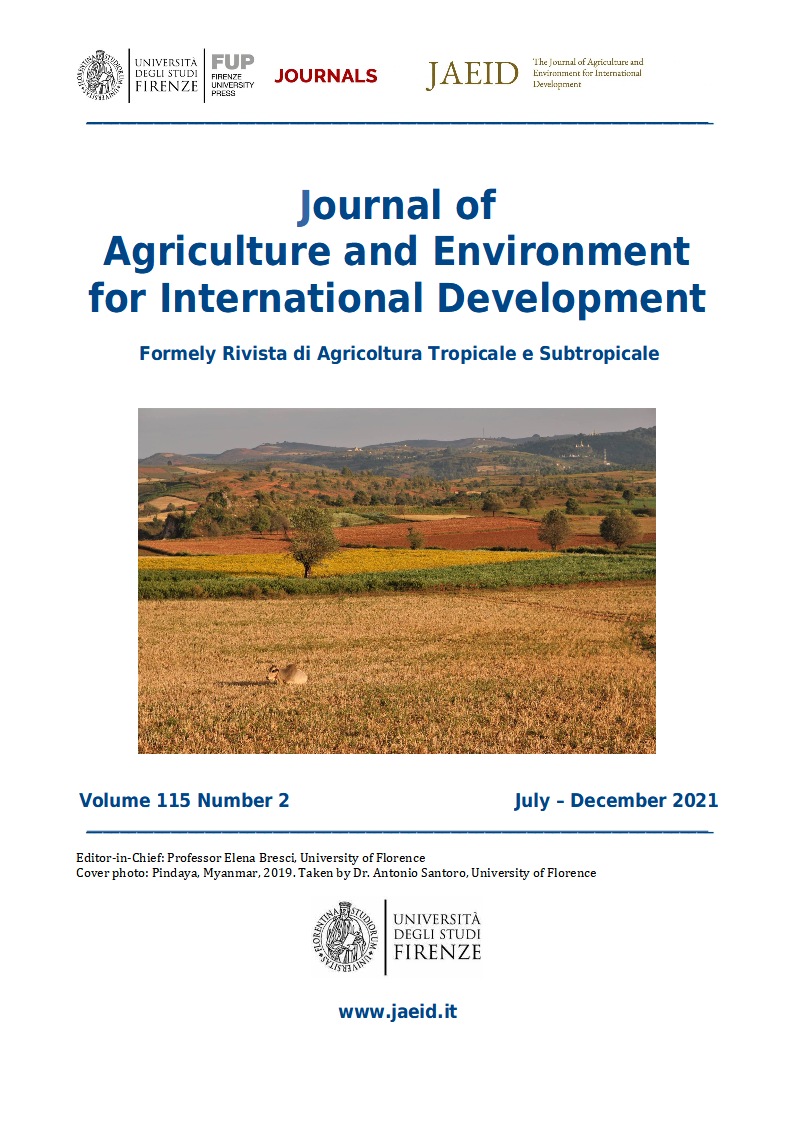Effect of domestic greywater reuse for irrigation on soil physical and chemical characteristics and tomatoes growth.
Published 2021-12-30
Keywords
- pH, EC, SAR, nutrients’ concentration,
- hydraulic conductivity,
- tomato growth
How to Cite
Abstract
This study aimed at determining the effect of laundry greywater on the growth of tomatoes and physical and chemical properties of a sandy loam Perrox in the Eastern province of Rwanda, Kayonza district, Mwiri sector. The experimental design consisted of plots planted with tomatoes (Lepersicon Esculantum) in a randomized complete block design with three replications and four treatments. Treatment 1: Tomatoes irrigated with pure greywater; Treatment 2: Tomatoes irrigated with a mixture of tap water and greywater at 1:1 ratio; Treatment 3: Alternation of greywater and tap water in a consecutive manner; and Treatment 4: only tap water serving as a control. Results showed that the following soil chemical parameters were significantly increased with greywater application: pH, EC, Av P, Na and SAR. Conversely, soil concentration in Mg and Ca significantly decreased with increase in greywater application. With the exception of soil bulk density, other measured physical properties such as soil hydraulic conductivity, aggregate stability and porosity were significantly reduced with greywater application. The highest values for soil hydraulic conductivity, aggregate stability and porosity were found for soil irrigated with tap water which ranged between 1.01 to 2.1 times higher than that of greywater, mixed or alternated with tap water. The alternate application of greywater and tap water did not affect significantly the stem height and weight of tomatoes. We concluded that the absence of positive growth effect of application of greywater was due to low concentration in essential plant nutrients in greywater, and induced adverse effects on soil chemical, physical, and biological properties. However, alternate application of the greywater and tap water preserved approximately the same soil physico-chemical characteristics as with application of tap water. Thus, among the irrigation treatments involving greywater, the latter should be considered as the most environmentally friendly. We propose combination of greywater with various forms of composts as the one of the most promising investigations on the reuse of greywater in irrigation.





